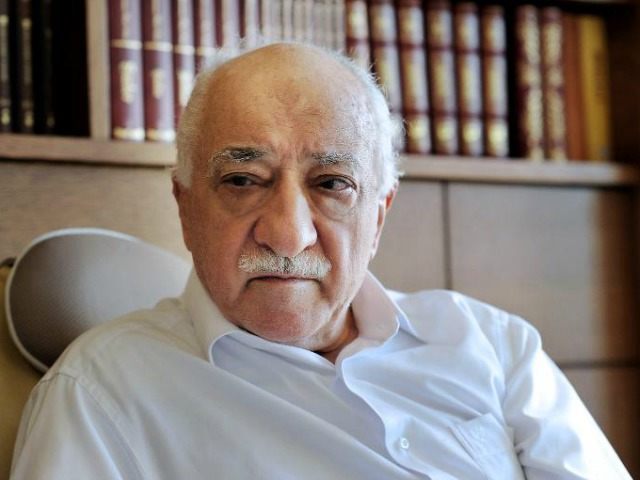Charter schools that may soon be operating on military bases in the United States are linked to what the Turkish government describes as an Islamic cult run by Fethullah Gülen, a powerful cleric living in Pennsylvania.
The allegations come from lawyer Robert R. Amsterdam, founder of international law firm Amsterdam and Partners LLP, writing at The Hill.
As Amsterdam forthrightly discloses early in the piece, his firm has been “engaged by the Republic of Turkey – a key NATO ally in a hotbed region – to conduct a wide-ranging investigation into the operations and geopolitical influence of the Gülen organization, which is behind the Coral Academy of Science and over 140 other public charter schools scattered across 26 American states.”
This is a reference to the Muslim cleric Gülen, whom Amsterdam describes as “a reclusive but influential Imam living under self-imposed exile in Pennsylvania to avoid criminal prosecution in his native Turkey.” Gülen is a powerful and determined opponent of the Turkish Prime Minister Recep Tayyip Erdogan.
The Coral Academy of Science in Las Vegas is negotiating with the United States Air Force to open a charter school at Nellis Air Force Base this fall. Amsterdam says his firm’s investigation revealed that the Gülen organization “uses charter schools and affiliated businesses in the U.S. to misappropriate and launder state and federal education dollars, which the organization then uses for its own benefit to develop political power in this country and globally.”
He also alleges that the organization abuses the H1-B visa program to import Turkish teachers into the United States, improbably claiming there are no qualified American teachers available for the positions, and then controls these Turkish educators by holding their visas hostage, even using the threat of deportation to force salary kickbacks from the teachers.
Amsterdam says that contributions, both voluntary and coerced, from Gülen’s estimated six million followers around the world give his organization assets worth $20 billion to $50 billion.
Amsterdam describes the schools’ secret agenda as trying to “instill Turkish culture and Gülenist ideology in our American students,” with an eye toward creating “a Gülenist following of high achievers, incubated in our local community schools across the country.”
He says this agenda has been pursued by Gülenist schools in other countries and warns, “there is great peril in allowing it to flourish in this country,” noting that Gülen’s organization has been described by international authorities as a cross between a secretive political movement and a cult.
There is little doubt that Gülen has great influence in Turkey and has been fighting a political war against the Erdogan government, with many Turkish news stories ultimately tracing back to Gülen, although the international press does not always mention him. For example, the Turkish government’s recent crackdown on several news agencies is part of the Erdogan-Gülen war, as Erdogan has accused them of having ties to Gülen. Zaman, for example, a formerly anti-Erdogan publication, was accused of having ties to Gulen before being seized and turned into a newspaper that now runs headlines like “Praise Heaped on Erdogan! The Most Courageous Leader.”
“Erdogan accuses Gülen of conspiring to overthrow the government by building a network of supporters in the judiciary, police and media. Gülen denies the charges,” the UK Guardian reported in early March, echoing the accusations leveled by Amsterdam at The Hill.
Amsterdam cites estimates that Gülen’s network of schools, and the followers they indoctrinated, ultimately gave him control over “more than half of the entire Turkish police force.” As the Guardian recalls, it was a corruption investigation in 2013 by “police and prosecutors seen as sympathetic to Gülen,” targeting Erdogan’s inner circle, that kicked off the feud between the former political allies.
Gülen was in the Turkish headlines again on Thursday, as Hurriyet Daily News reports the Turkish General Staff denying that “some members of the military allegedly linked to the Fethullah Gülen movement were planning a coup d’état” while Erdogan is visiting the United States.
The General Staff further accused media outlets floating such speculation of seeking to undermine the morale of the armed forces and said it would take legal action against them. Given that one of the outlets in question is Newsweek, the prospects of such legal action succeeding seem remote.
One opposition party politician insisted that Turkey’s political system is too strong to suffer a coup and offered the rather circular argument that if Gülen’s operation — which he referred to as the “Fethullahist Terror Organization” or FETO — was strong enough to pull off a coup, they would not need one; in essence, they would be able to take over the government without the fireworks of attempting to overthrow the Turkish armed forces.
The Gülen movement prefers to be known as “Hizmet,” and through its news portal on March 25, it published an editorial from Gülen strongly denouncing the Brussels terror attack.
“Regardless of the perpetrators and their stated purposes, every terrorist attack is a murder and an attack on the sanctity of life itself, and deserves condemnation in the strongest terms. Neither a religion nor any human being with a conscience can condone such cruelty,” he wrote. “Those who carry out such attacks and who support the perpetrators are oblivious to the ethos of the religion that they proclaim, and inflict the biggest damage to the religion’s reputation in the world. Those who consciously perpetrate such acts have lost touch with their very humanity, and do not represent any religious identity.”
Such sentiments are unlikely to alleviate the suspicions of Gülen’s critics, who charge that his influence is a national security threat.
“In light of Gülen’s modus operandi elsewhere, the Department of Homeland Security should be asking itself why such a non-transparent, religion-based organization would seek to establish itself on our military bases, teaching the children of our service men and women,” Amsterdam concludes at The Hill.

COMMENTS
Please let us know if you're having issues with commenting.